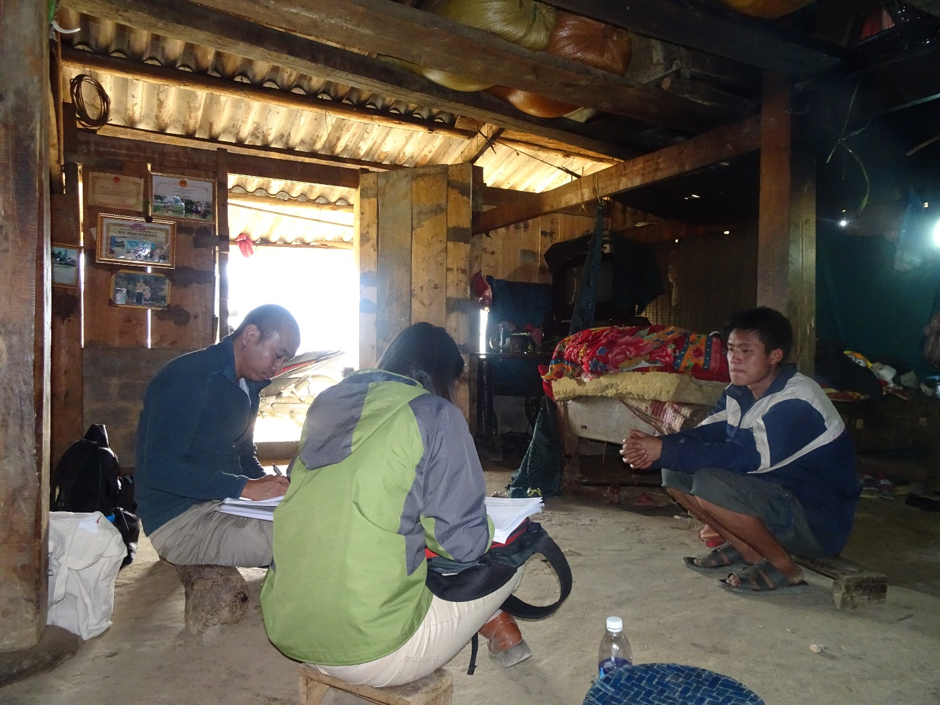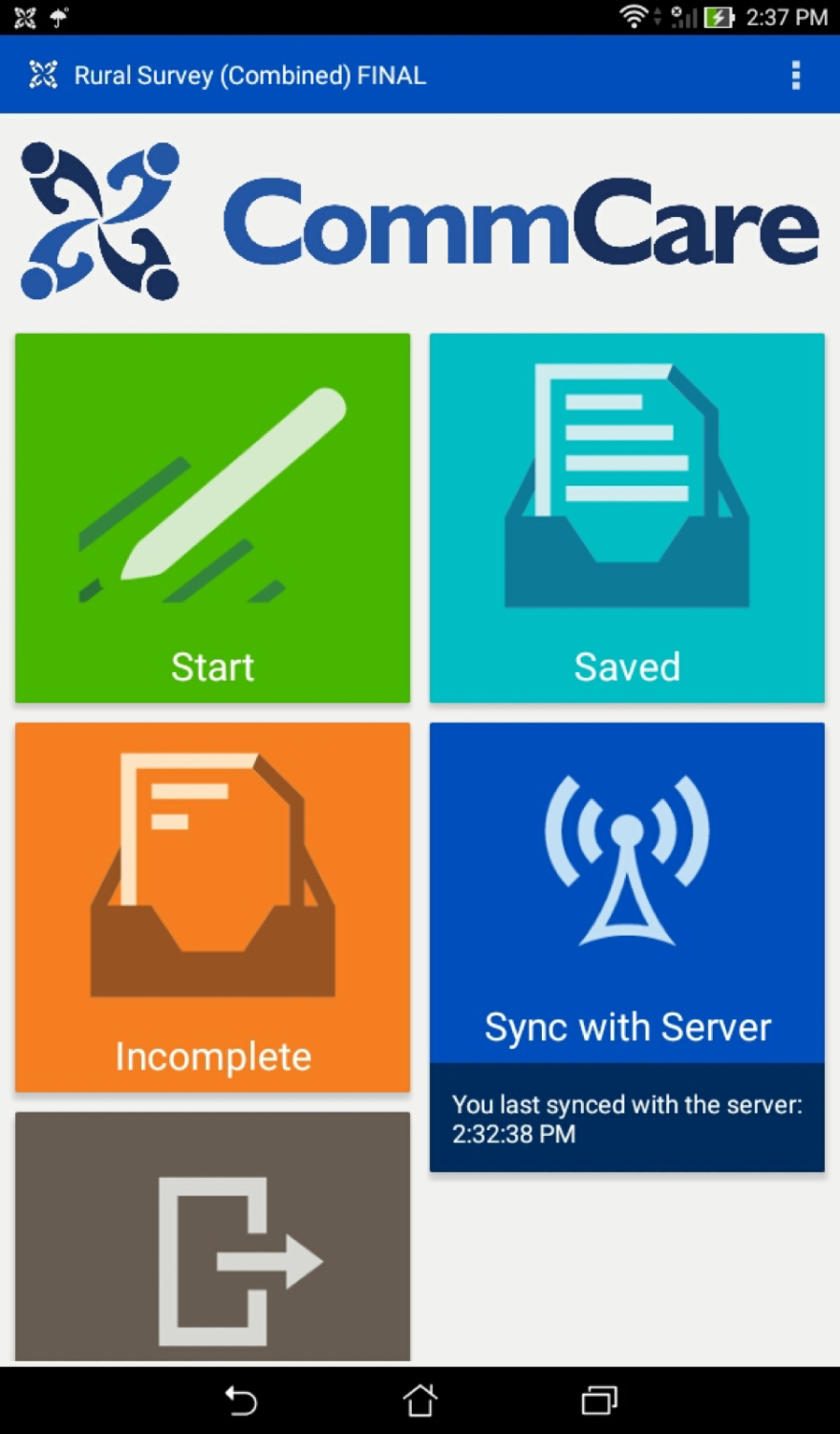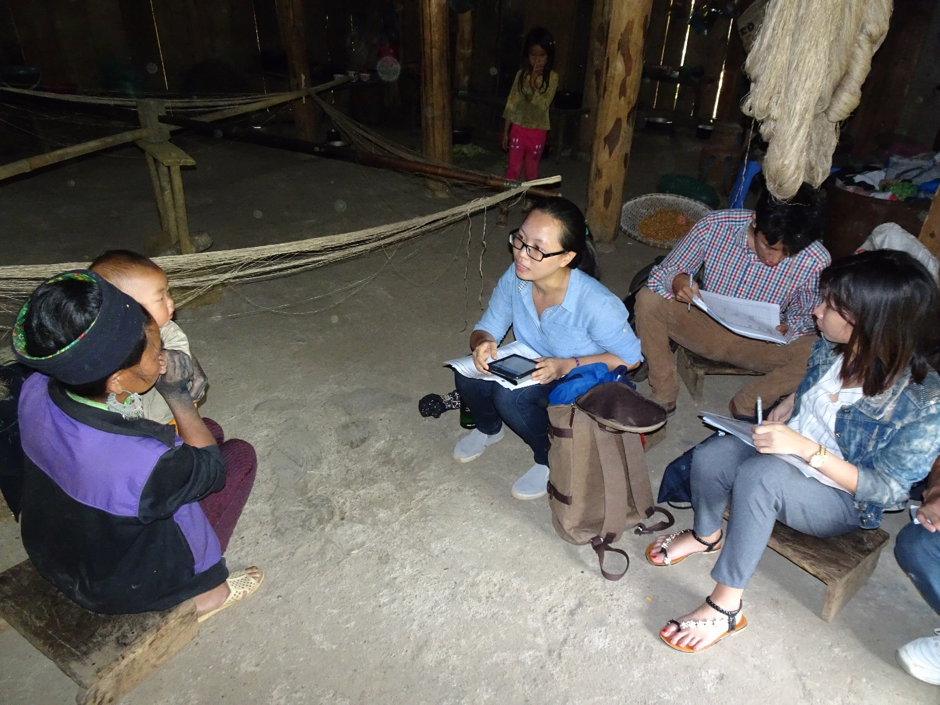From paper to paperless with CommCare
5. This is the number of hours it took, on average, to complete my paper-based survey questionnaire during the pre-testing in Vietnam. The reaction of our first respondent is still vivid, their face was a roadmap of emotions, traveling from all-embracing, to puzzled, and then to frustration.
My survey questionnaire was comprehensive, to a fault. This was to ensure that all factors affecting household diets of rural farming households were captured; this included dietary intake, disease, gender roles, poor surroundings, consumption patterns, farm production information, anthropometric measurements, among many other factors.
Inevitably, the time it takes for the enumerator to read each question, follow the skip logic, jot down the answers, and the way the respondent answers the questions, compounded the problem. And then came CommCare to the rescue.

Christian (left) and Pham Toan (middle in green jacket) from Vietnam National University of Agriculture (VNUA), pretesting the paper-based questionnaire in one household in Sa Pa district, Lao Cai province, Vietnam.
CommCare is an open source mobile application that is easily customizable. It allows a researcher to create, edit, and deploy mobile applications without a software developer or any background in programming. It gives a researcher the ability to check the performance of their staff in real time, checking time spent per module, current location and visual, audio and video captures.

A screenshot of the CommCare app in the mobile device
The ACIAR project (AGB/2012/059) I am involved in was one of the four projects to pilot CommCare. Dubbed as the Mobile Acquired Data (MAD) Small Research Activity, the activity aims to evaluate the benefits of digital data mobile applications in ACIAR projects. It is led by AgImpact, a research and development support company.
I started learning about CommCare when I worked with SmartDecision, a Tanzania-based company hired to migrate my paper-based questionnaire into CommCare. I found the web-based platform, where you build your app before deploying to an Android mobile device, easy to navigate. However, like any other app, CommCare has bugs, but there are online resources to keep you on track including Dimagi Confluence Dashboard, CommCare Users Google group, or AgImpact. Learning about CommCare is continuous so, when the MAD Apps Workshop organised by RAID was advertised, I immediately signed up.

Ms Do Thi Kim Yen, one of the enumerators hired by the Mekong Development Research Institute (MDRI), pretesting the mobile app using CommCare in one of the households in Sa Pa district, Lao Cai province, Vietnam.
In a nutshell, the benefits of using CommCare outweighed any problems I have encountered. What are these benefits, you might ask?
- The time and money saved from data encoding or data entry.
- The ability to review your data in real-time, minimizing errors when on site.
- It is environmentally-friendly as field researchers no longer need to print bulky paper questionnaires.
Although my journey with CommCare was not as smooth as silk, the people I’ve worked with made the journey from paper to paperless as smooth as can be. It also made the lives of the enumerators easier as they “escaped” the burden of carrying paper questionnaires while traversing the remote and rugged terrains of northwest Vietnam.


